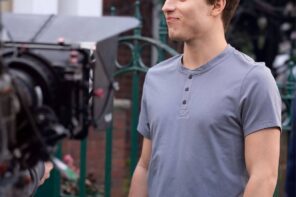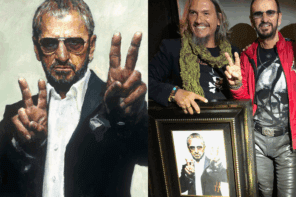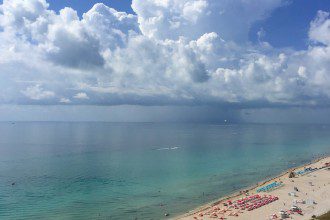Yoko Ono embodies a multitude of roles: peace activist, musician, filmmaker, and more. Yet, her substantial contributions often take a backseat to her marriage with John Lennon. Now, on the occasion of her 91st birthday, the Tate Modern is redirecting the spotlight onto Ono’s groundbreaking career with the debut of the UK’s most expansive exhibition dedicated exclusively to her work.
Entitled “Yoko Ono: Music of the Mind,” the exhibition will run until September 1, 2024, at the esteemed Tate Modern gallery, situated along the banks of the River Thames in London. Over 200 pieces are showcased, spanning scores, installations, music, photography, and films.

Tracing Ono’s career across seven decades, the exhibition commences with an exploration of her involvement in experimental avant-garde circles in Tokyo and New York during the mid-1950s. Rarely seen photographs reveal Ono’s inaugural ‘instruction paintings’—artworks featuring written directives to prompt viewer engagement—displayed at her loft in downtown Manhattan.
Making its UK debut is the typescript of Ono’s self-published conceptual artbook, “Grapefruit,” encompassing her instruction pieces from 1953 to 1964. Attendees are encouraged to engage with various exhibits; “Bag Piece,” for instance, invites participants to enter a large cloth bag, while “Shadow Piece” encourages visitors to trace their shadows on a wall.

The exhibition then delves into Ono’s radical creations during her five-year residence in London starting in 1966, coinciding with her introduction to her future husband and long-term collaborator, John Lennon. Ono’s controversial “Film No. 4 (Bottoms),” banned by British film censors for its provocative content, is showcased alongside her “Half-A-Room” installation featuring halved domestic objects.
Embracing the interactive nature of the exhibit, visitors can engage in “White Chess Set,” a game featuring an all-white board and pieces with the directive to ‘play as long as you remember where all your pieces are.’ This embodies another of Ono’s anti-war endeavors, transforming strategic competition into collaborative experimentation.
The exhibition further explores recurring themes in Ono’s oeuvre, including her advocacy for peace and humanitarian causes. Exhibits include images from her iconic ‘WAR IS OVER!’ billboard campaign in 1969 and the documentary “BED PEACE,” chronicling her and John Lennon’s ‘bed-in’ events staged in Amsterdam and New York as a plea for peace during the Vietnam War.
Additionally, recent works are showcased, including Ono’s “Add Colour (Refugee Boat)” installation, first unveiled in 2016. This invites viewers to apply paint to white gallery walls and a white boat in response to the ongoing migration crisis.





